12 of the Best Protein Sources for Vegetarians
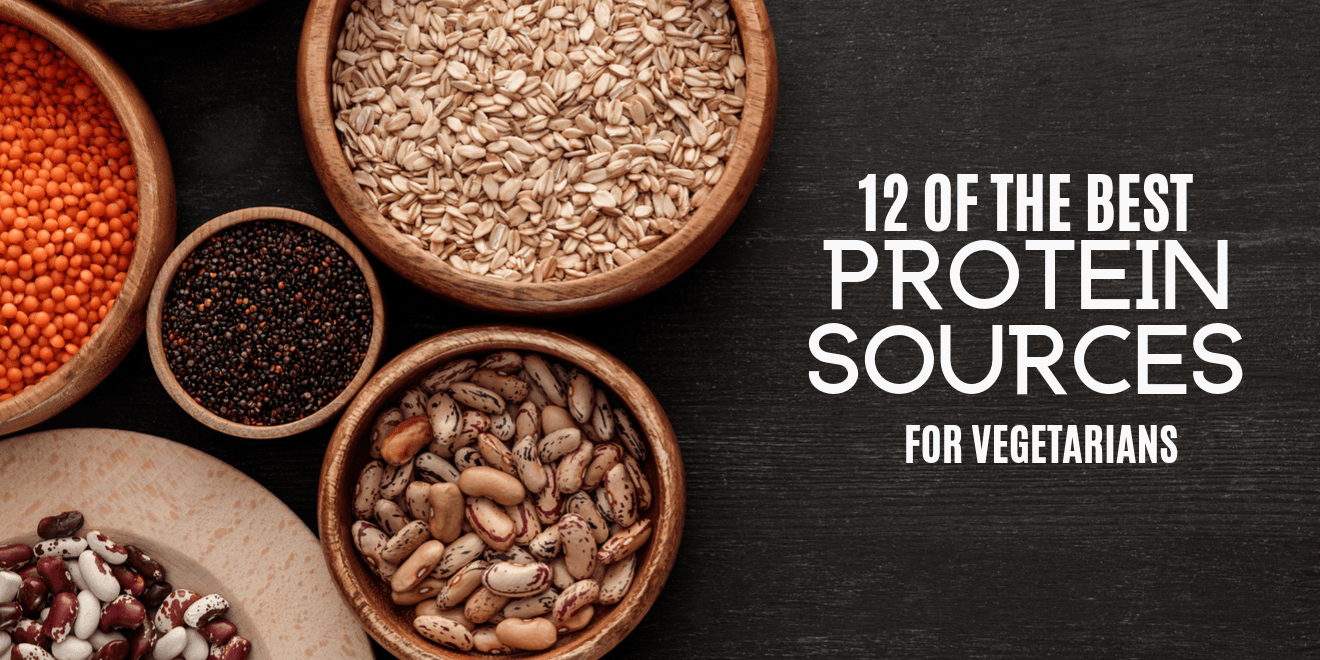
Surprise! Plants also offer great sources of dietary protein.
If you are seriously thinking about becoming a vegetarian , don’t worry, you don’t have to struggle to get adequate protein. What is a vegetarian?
But the thing is, protein is the absolute key for maintaining your muscles and keeping them strong. (Note, below is a follow-up article for vegetarians, vegans, and flexitarians alike)
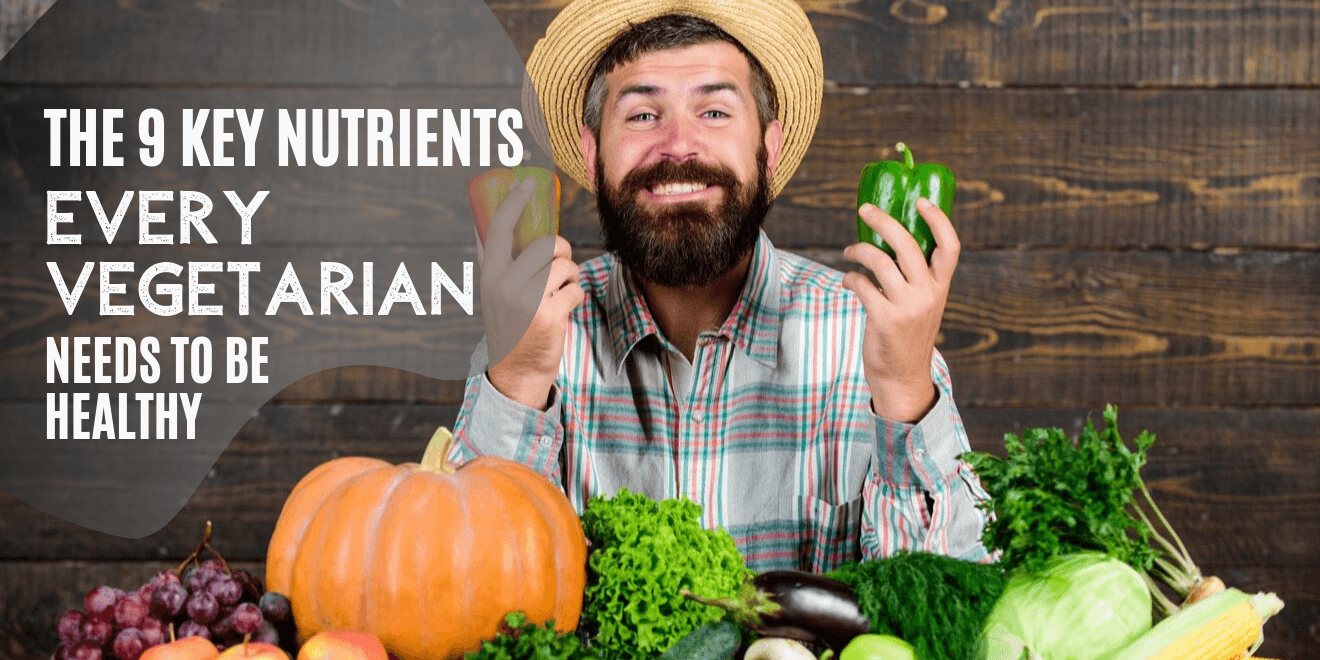
Protein, too, is the macronutrient you need when you are dieting because it keeps you feeling full and satisfied. People also wonder where vegetarians actually get their proteins from.
According to Dietary Guidelines, men need to get 56 grams of protein a day and women need 46 grams of protein a day. This depends on your activity levels, age, and a few other factors though.
Let’s take a look at some great high protein vegetarian-type foods that vegetarians can add to their diets:
23 grams of protein per cup.
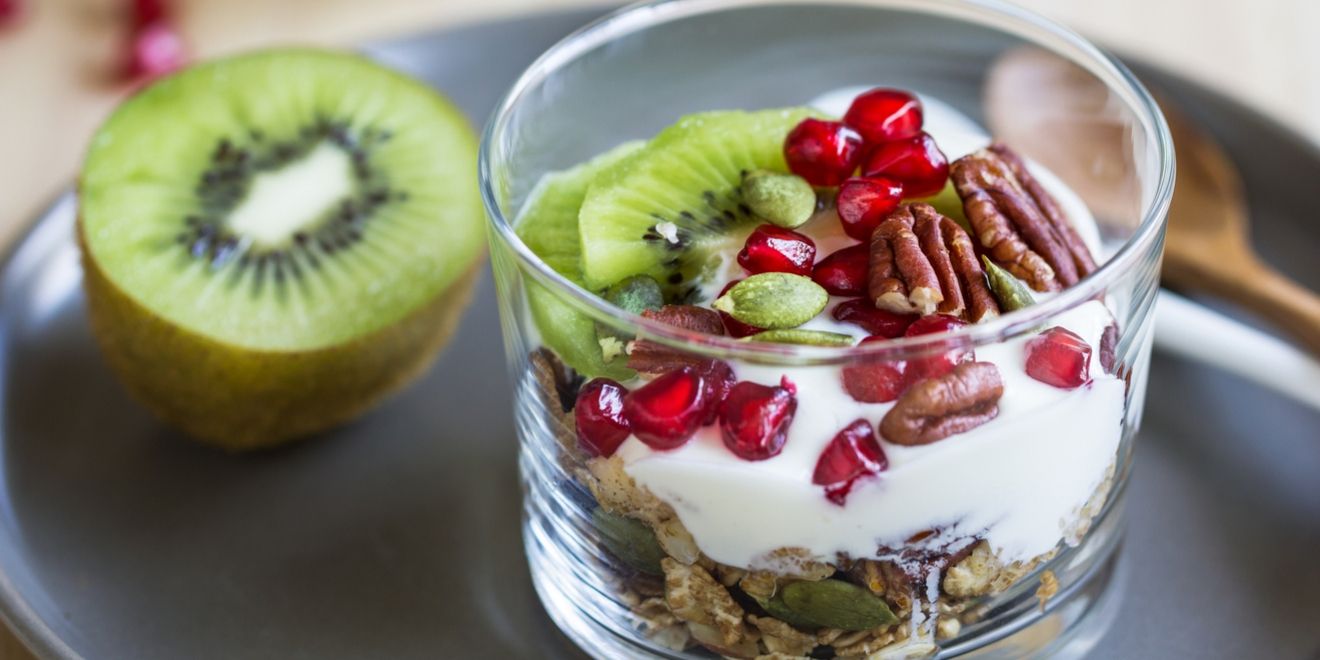
How delicious is Greek yogurt? You can add it to smoothies and layer it with delicious fruit and granola. Or use it like sour cream for your dips and tacos. Not only plenty of protein, but Greek yogurt also contains probiotics to keep your gut healthy. Just be cautious when buying store-bought yogurt -- keep an eye on sugar content!
9 grams of protein per ½- cup (cooked)
Lentils are truly packed with protein and also offer you essential fiber which is so good for your heart. Lentils give you that full feeling and keep your weight in check.
3 grams of protein per 1 tablespoon
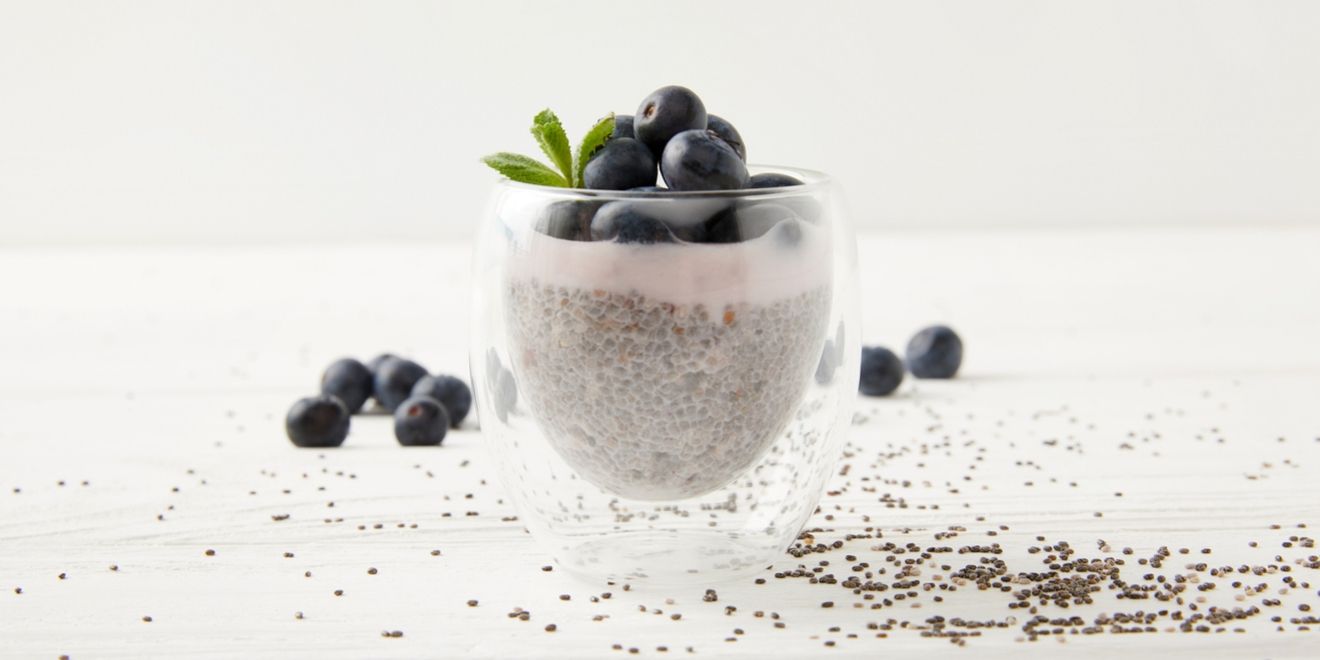
Chia seeds are nutrient-dense, delivering protein, plenty of fiber and omega-3. Chia seeds can also be blended into smoothies. Did you know that you can make delicious chia seed jam to eat on your toast?
8 grams of protein per cup (cooked)
This one you don’t want to do without because as a protein, it actually contains all nine essential amino acids. That makes it a complete protein that other plant-based proteins aren’t. Just a cup of quinoa gives you 5 grams of fiber too.
Apart from all that filling protein, quinoa is very rich in phosphorous, magnesium, manganese, iron, zinc, thiamine, and folate. And for those who always look out for gluten-free foods, quinoa comes out with full marks.
14 grams of protein per ½-cup
Cottage cheese is delicious on healthy whole-wheat biscuits. It also works so well as a dip or you can even add fruit to it. But on top of that, it’s good for you!
OK, it is a bit higher in sodium than Greek yogurt is, so you need to bear that in mind if you need to watch your salt intake.
4 grams of protein per 1 tablespoon
Not only are hemp seeds an excellent source of protein, but they provide plenty of omega-3. They are also delicious sprinkled over smoothies.
8 grams of protein per 1/2 cup (cooked)
Just like lentils, beans also deliver plenty of fiber and are ideal to add to dips, soups, and salads.
5 grams of protein per 1/4 cup (shelled)
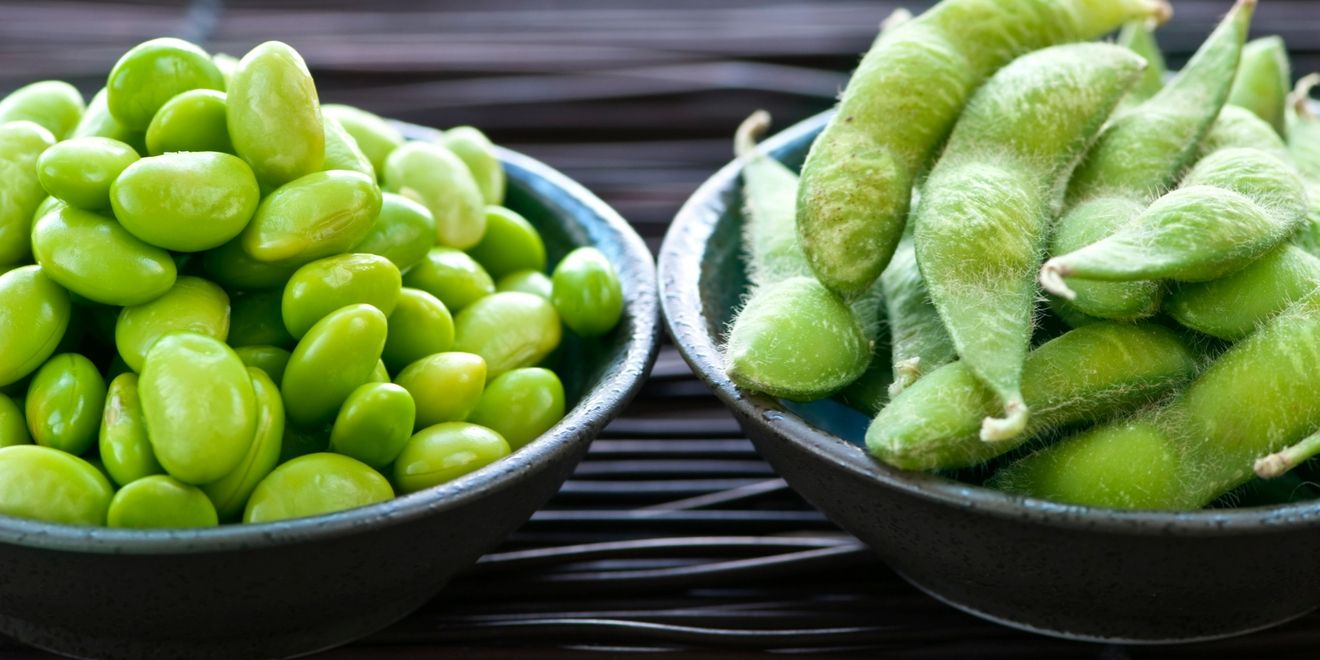
Never heard of edamame? Well, they are actually green soybeans, and you often find them on the sushi restaurant menus. You buy them either in their shells or shelled – add to salads, stir-fries, and grain bowls.
8 grams of protein per cup
A lot of us don’t really know that peas are a protein source, but they are. Green pea soup is just too delicious for words and very healthy. They are also ideal for side dishes, or added to salads, etc.
7 grams of protein per 2 tablespoons

Peanut butter and peanuts are packed with protein, good fat, and fiber. That’s a winning combination if you are talking good health! Peanut butter is so delicious that apart from eating it on toast, it is ideal for smoothies too, let alone dunking a spoon in and eating it just like it is.
6 grams of protein per ounce
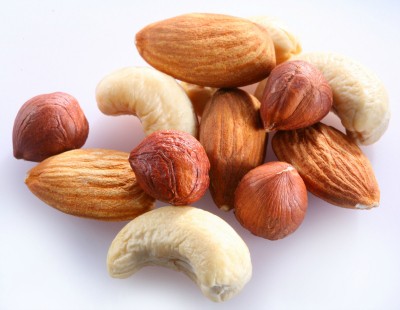
Almonds are also packed with protein, fat, and fiber. Almonds are a wonderful vegetarian option to keep hunger pangs at bay. They are filling as a snack, or they can be added to salads or you can make almond butter with them.
6 grams of protein per large egg
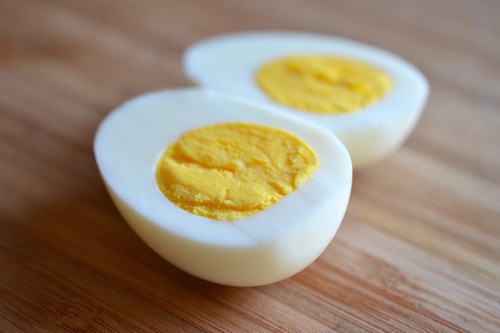
Eggs are just too delicious, and many people want to eat them much more than just for breakfast. Previously eggs had a bad reputation because they are high in cholesterol but, eating cholesterol doesn't raise your cholesterol.
Egg yolks are extremely nutrient-rich, delivering protein, antioxidants , and vitamins.
Don’t be too chicken to try these out, they are truly the best vegetarian protein sources for glowing health.
If you are seriously thinking about becoming a vegetarian , don’t worry, you don’t have to struggle to get adequate protein. What is a vegetarian?
A vegetarian is someone who leaves out fish and meat - sometimes even animal by-products from their diet for religious, moral, or health reasons.
But the thing is, protein is the absolute key for maintaining your muscles and keeping them strong. (Note, below is a follow-up article for vegetarians, vegans, and flexitarians alike)

Protein, too, is the macronutrient you need when you are dieting because it keeps you feeling full and satisfied. People also wonder where vegetarians actually get their proteins from.
According to Dietary Guidelines, men need to get 56 grams of protein a day and women need 46 grams of protein a day. This depends on your activity levels, age, and a few other factors though.
12 High-Protein Vegetarian Foods
Let’s take a look at some great high protein vegetarian-type foods that vegetarians can add to their diets:
1. Greek yogurt
23 grams of protein per cup.

How delicious is Greek yogurt? You can add it to smoothies and layer it with delicious fruit and granola. Or use it like sour cream for your dips and tacos. Not only plenty of protein, but Greek yogurt also contains probiotics to keep your gut healthy. Just be cautious when buying store-bought yogurt -- keep an eye on sugar content!
2. Lentils
9 grams of protein per ½- cup (cooked)
Lentils are truly packed with protein and also offer you essential fiber which is so good for your heart. Lentils give you that full feeling and keep your weight in check.
3. Chia seeds
3 grams of protein per 1 tablespoon

Chia seeds are nutrient-dense, delivering protein, plenty of fiber and omega-3. Chia seeds can also be blended into smoothies. Did you know that you can make delicious chia seed jam to eat on your toast?
4. Quinoa
8 grams of protein per cup (cooked)
This one you don’t want to do without because as a protein, it actually contains all nine essential amino acids. That makes it a complete protein that other plant-based proteins aren’t. Just a cup of quinoa gives you 5 grams of fiber too.
Apart from all that filling protein, quinoa is very rich in phosphorous, magnesium, manganese, iron, zinc, thiamine, and folate. And for those who always look out for gluten-free foods, quinoa comes out with full marks.
5. Cottage cheese
14 grams of protein per ½-cup
Cottage cheese is delicious on healthy whole-wheat biscuits. It also works so well as a dip or you can even add fruit to it. But on top of that, it’s good for you!
OK, it is a bit higher in sodium than Greek yogurt is, so you need to bear that in mind if you need to watch your salt intake.
6. Hemp Seeds
4 grams of protein per 1 tablespoon
Not only are hemp seeds an excellent source of protein, but they provide plenty of omega-3. They are also delicious sprinkled over smoothies.
7. Beans, such as black beans, chickpeas, etc.
8 grams of protein per 1/2 cup (cooked)
Just like lentils, beans also deliver plenty of fiber and are ideal to add to dips, soups, and salads.
8. Edamame
5 grams of protein per 1/4 cup (shelled)

Never heard of edamame? Well, they are actually green soybeans, and you often find them on the sushi restaurant menus. You buy them either in their shells or shelled – add to salads, stir-fries, and grain bowls.
9. Green Peas
8 grams of protein per cup
A lot of us don’t really know that peas are a protein source, but they are. Green pea soup is just too delicious for words and very healthy. They are also ideal for side dishes, or added to salads, etc.
10. Peanut Butter
7 grams of protein per 2 tablespoons

Peanut butter and peanuts are packed with protein, good fat, and fiber. That’s a winning combination if you are talking good health! Peanut butter is so delicious that apart from eating it on toast, it is ideal for smoothies too, let alone dunking a spoon in and eating it just like it is.
11. Almonds
6 grams of protein per ounce

Almonds are also packed with protein, fat, and fiber. Almonds are a wonderful vegetarian option to keep hunger pangs at bay. They are filling as a snack, or they can be added to salads or you can make almond butter with them.
12. Eggs
6 grams of protein per large egg

Eggs are just too delicious, and many people want to eat them much more than just for breakfast. Previously eggs had a bad reputation because they are high in cholesterol but, eating cholesterol doesn't raise your cholesterol.
Egg yolks are extremely nutrient-rich, delivering protein, antioxidants , and vitamins.
Don’t be too chicken to try these out, they are truly the best vegetarian protein sources for glowing health.




































































































